Optimal Timing for Wood Fence Staining
Choosing the optimal time for wood fence staining enhances durability and appearance. Proper timing ensures the stain adheres well and provides maximum protection against weathering and UV damage.
Spring and early fall are preferred due to moderate temperatures and lower humidity, which facilitate proper drying and absorption of the stain.
Staining should be done when the forecast predicts at least 24 hours of dry weather, avoiding rain, high humidity, or extreme temperatures.
Optimal temperatures range from 50°F to 85°F. Temperatures outside this range can hinder proper curing and adhesion of the stain.
The fence should be cleaned and fully dry before application. This typically requires waiting a few days after rain or cleaning to ensure moisture levels are low.
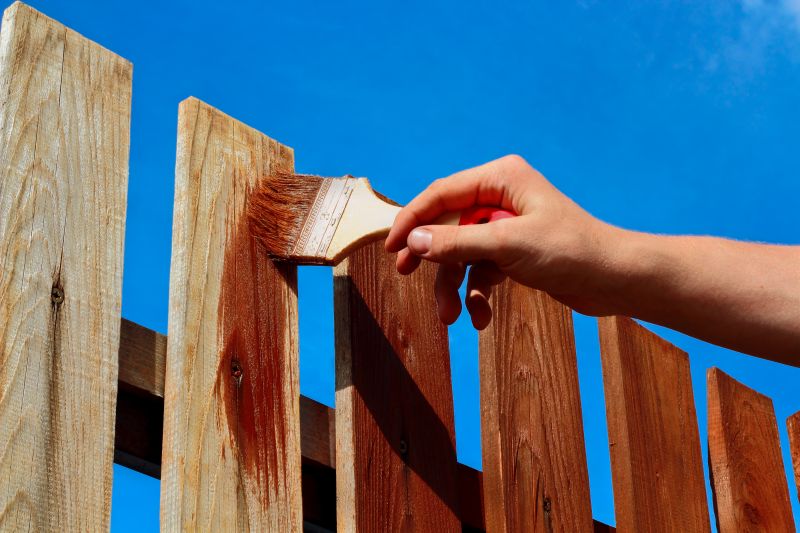
Spring provides ideal conditions for staining with moderate temperatures and lower humidity levels.
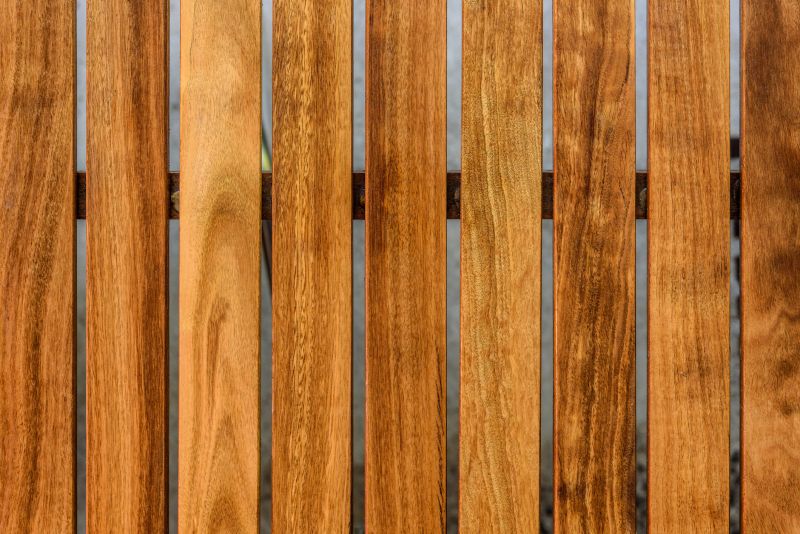
Fall offers cooler weather and less direct sunlight, making it suitable for staining projects.
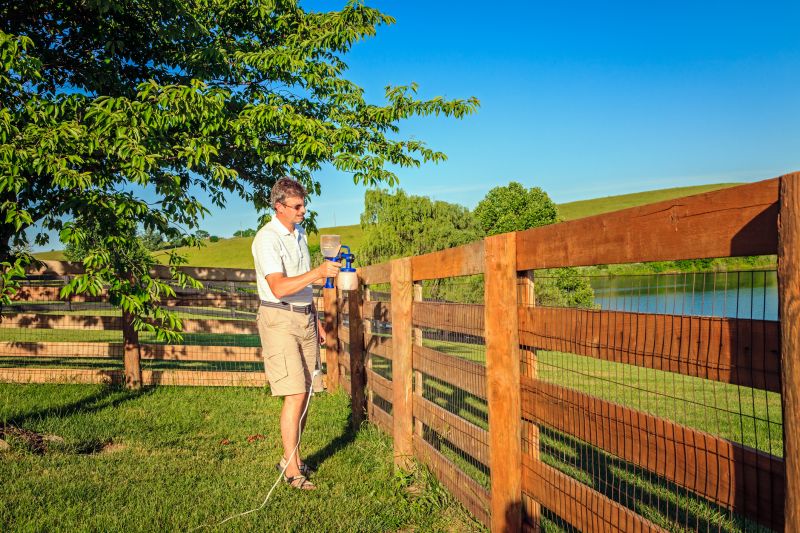
Avoid staining during rainy, humid, or extremely hot days to ensure proper adhesion and drying.
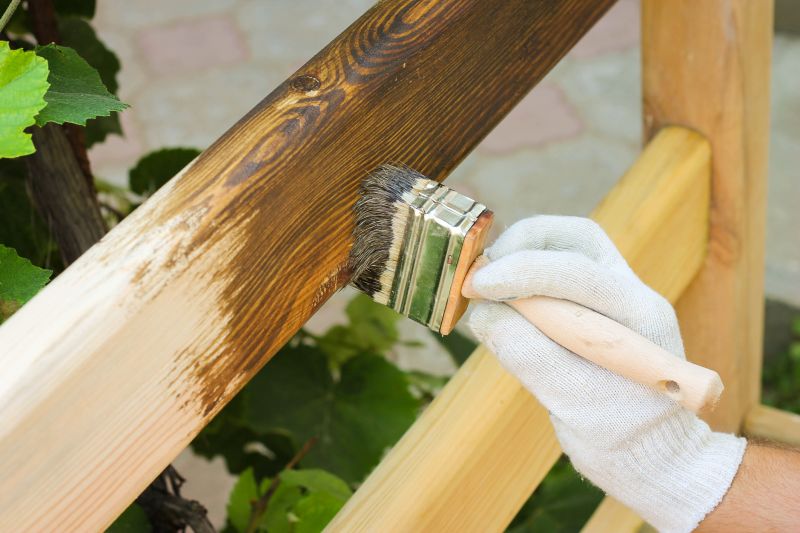
Ways to make Wood Fence Staining Service work in tight or awkward layouts.

Popular materials for Wood Fence Staining Service and why they hold up over time.
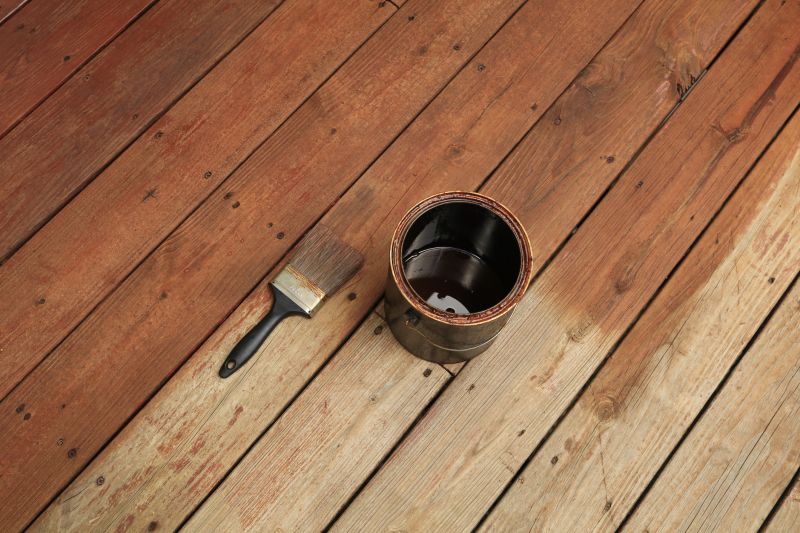
Simple add-ons that improve Wood Fence Staining Service without blowing the budget.
Wood fence staining is a maintenance process that extends the lifespan of a fence by protecting it from moisture, UV rays, and pests. Staining enhances the natural beauty of wood, highlighting grain patterns and providing a uniform appearance. Properly stained fences can last several years longer than untreated wood, reducing the need for costly repairs or replacements. According to industry statistics, regular staining can double the lifespan of a wood fence, making timing and application crucial for optimal results.
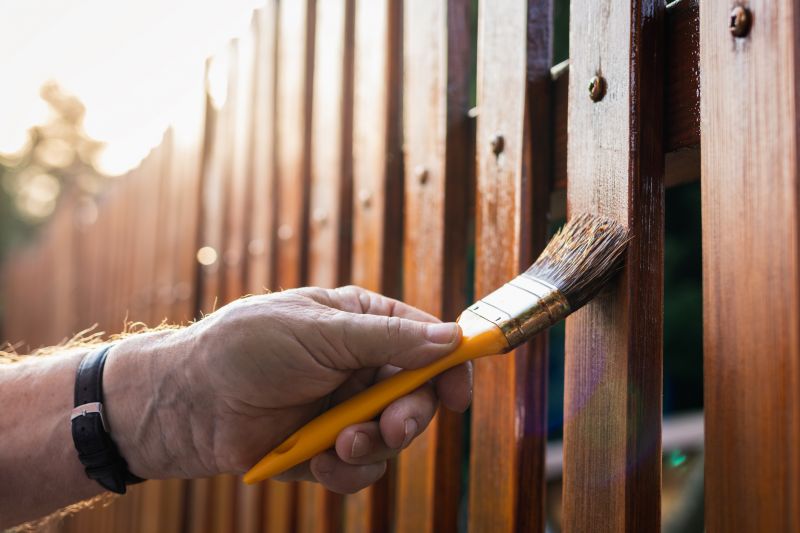
Proper tools and high-quality stains ensure an even, long-lasting finish.
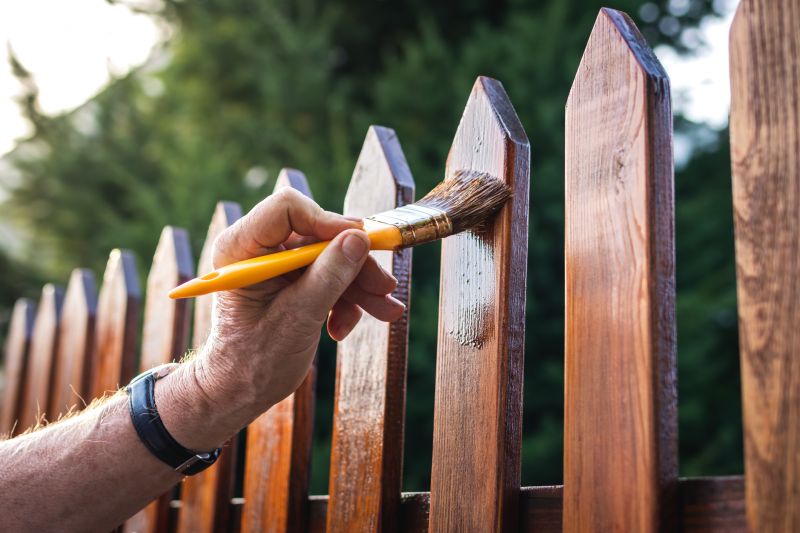
Cleaning and drying are essential steps before applying stain for best adhesion.
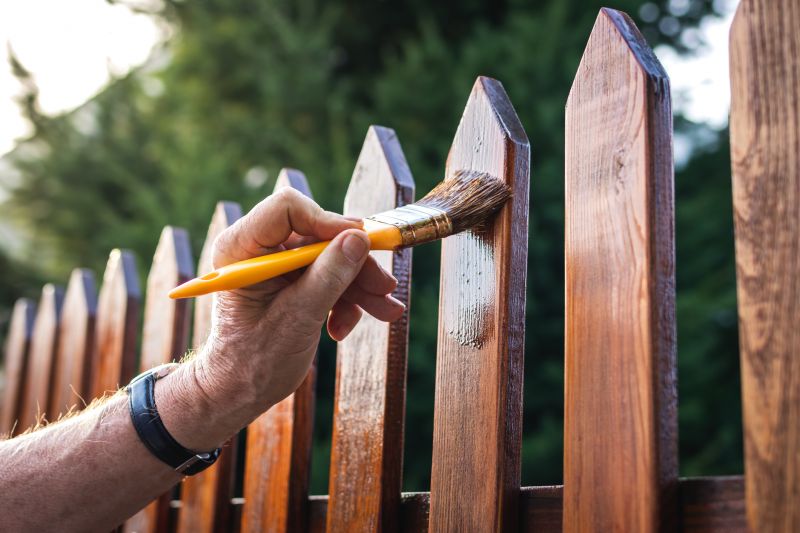
Brush, roller, or sprayer methods can be used, depending on the fence size and detail.
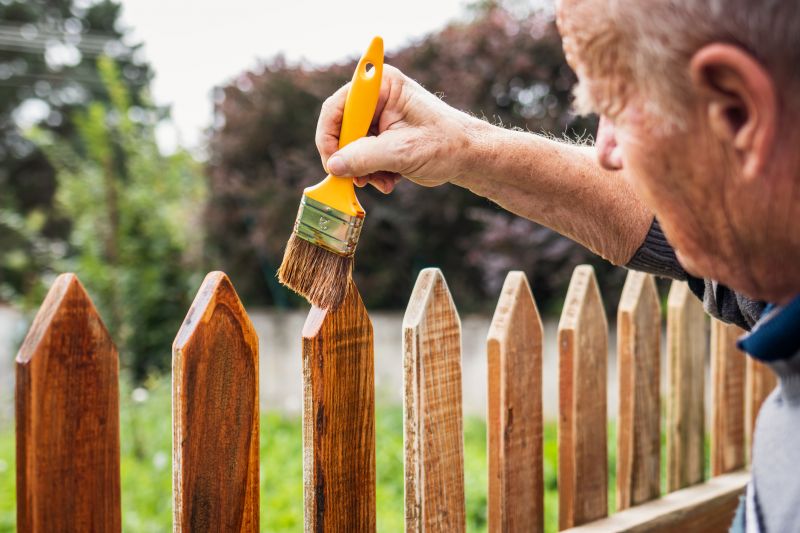
Regular inspections and touch-ups help maintain the fence's appearance and protection.
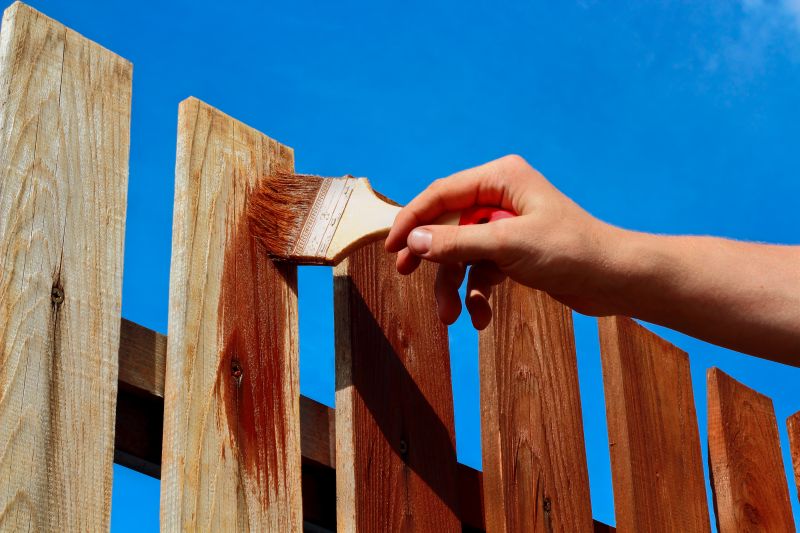
High-end options that actually feel worth it for Wood Fence Staining Service.
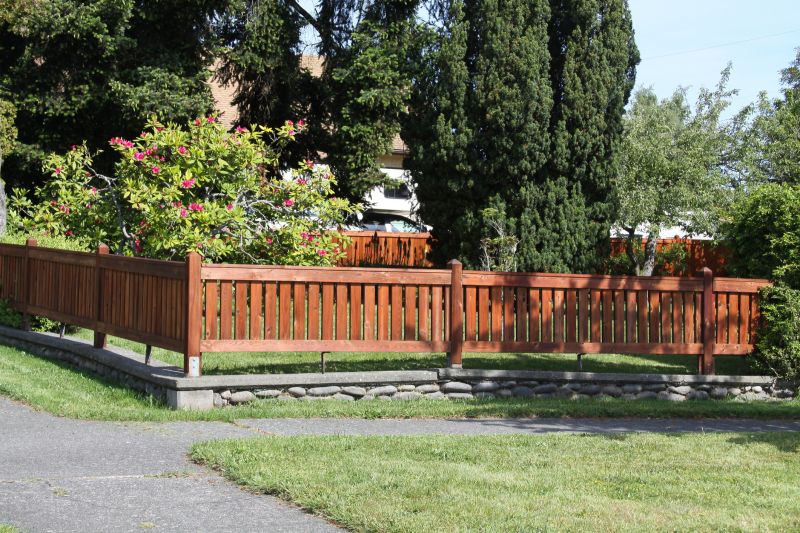
Finishes and colors that play nicely with Wood Fence Staining Service.
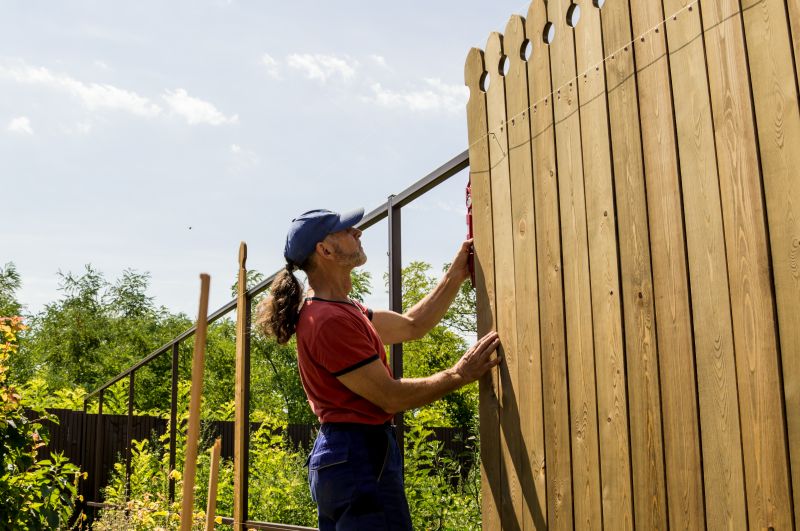
Little measurements that prevent headaches on Wood Fence Staining Service day.
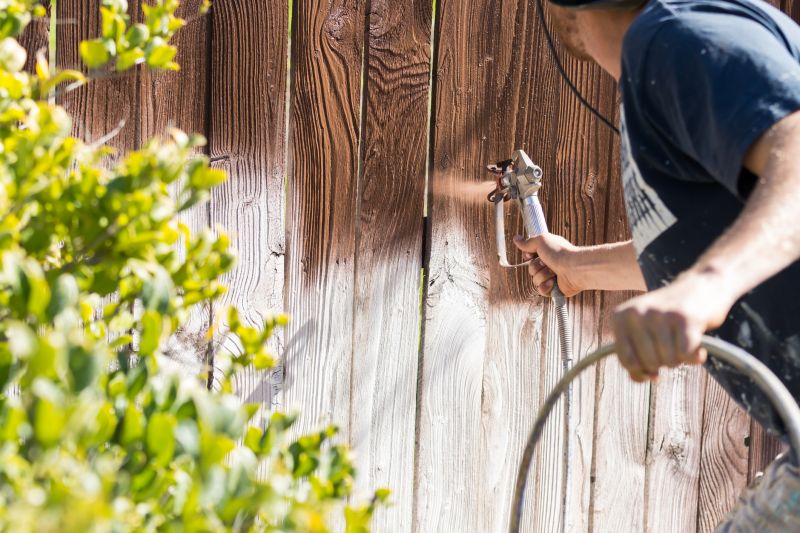
A 60-second routine that keeps Wood Fence Staining Service looking new.
| Season | Advantages |
|---|---|
| Spring | Moderate temperatures and low humidity facilitate proper staining. |
| Early Fall | Cooler weather reduces drying time and enhances adhesion. |
| Late Fall | Less direct sunlight helps prevent quick drying and uneven finish. |
| Summer | Possible but requires careful timing to avoid heat and humidity. |
| Winter | Generally unsuitable due to cold temperatures and moisture issues. |
Scheduling wood fence staining during the recommended seasons maximizes the effectiveness and longevity of the finish. Proper timing, combined with suitable weather conditions, ensures the stain penetrates evenly and cures correctly. This proactive approach helps maintain the fence’s appearance and structural integrity over time.
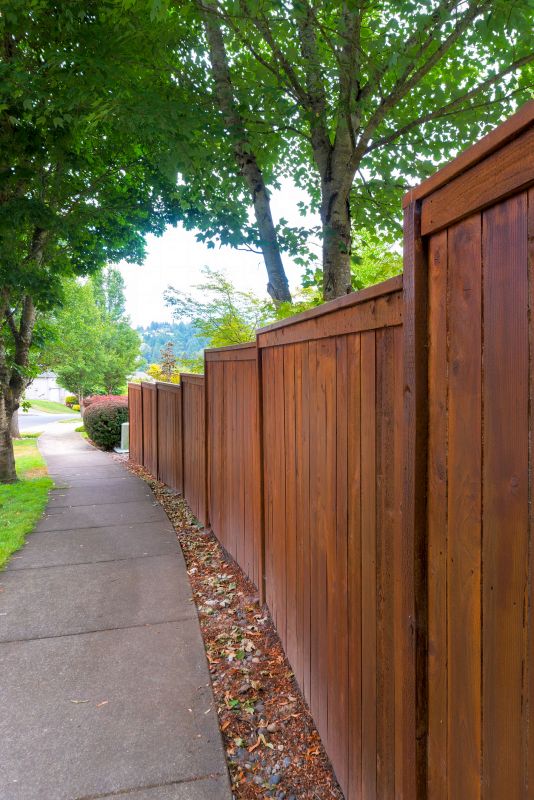
Applying stain during ideal weather prevents issues like streaking or peeling.
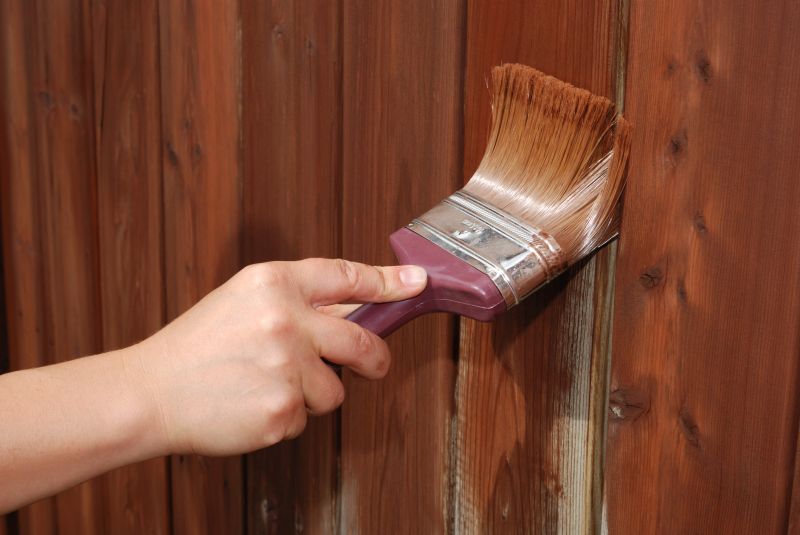
A dry, clean surface free of dust, mold, or moisture indicates readiness.
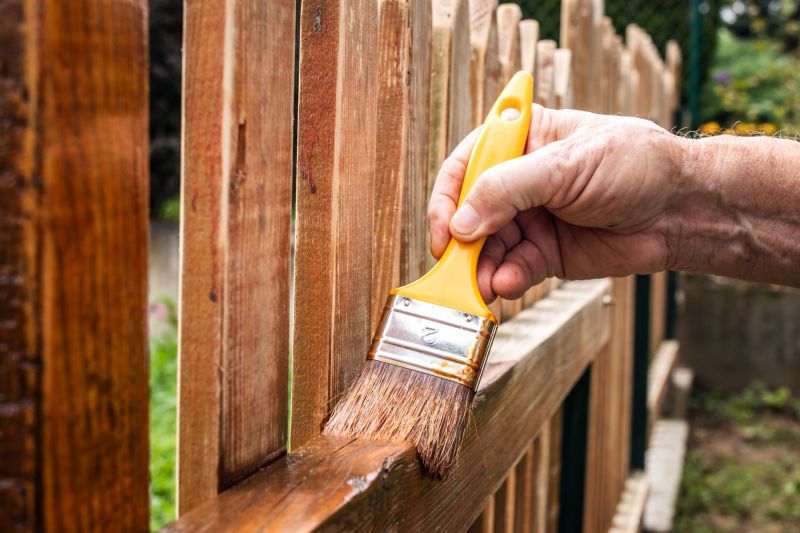
Enhanced appearance, longer-lasting protection, and fewer touch-ups.
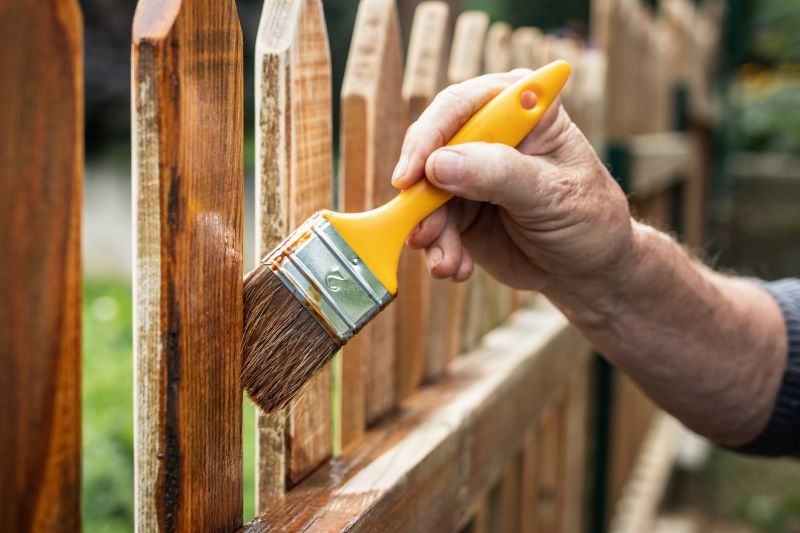
A frequent mistake in Wood Fence Staining Service and how to dodge it.
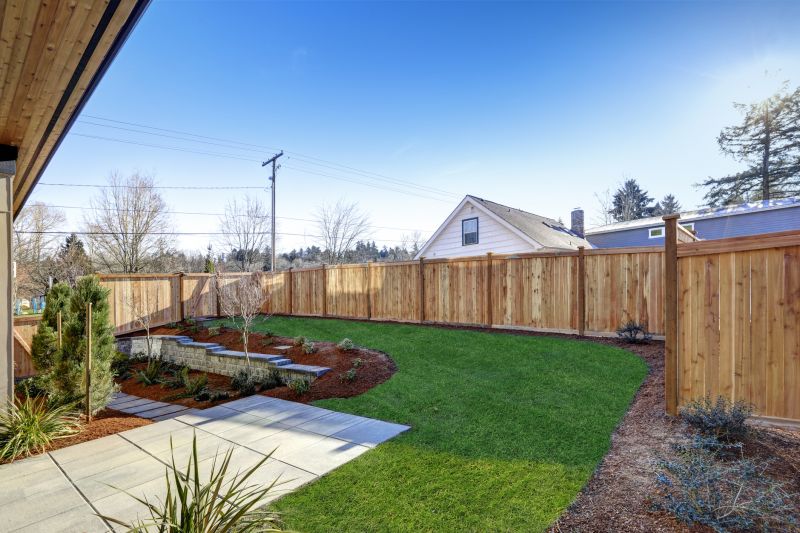
Small tweaks to make Wood Fence Staining Service safer and easier to use.
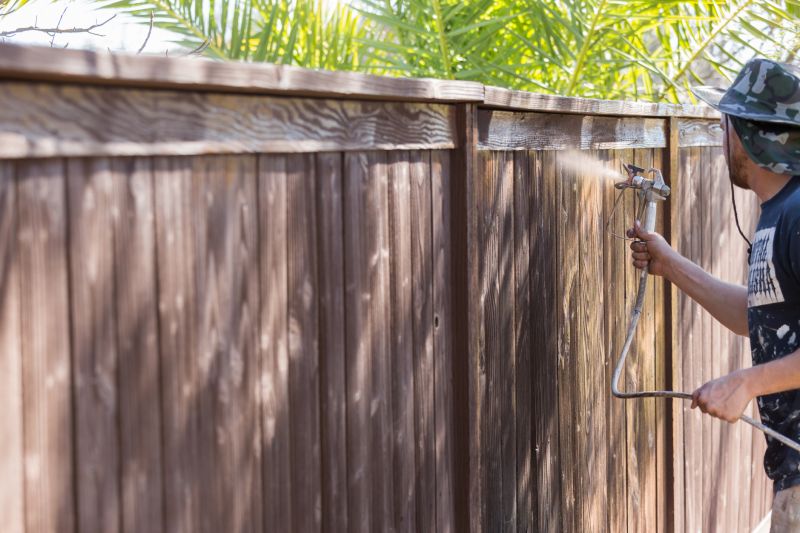
Lower-waste or water-saving choices for Wood Fence Staining Service.
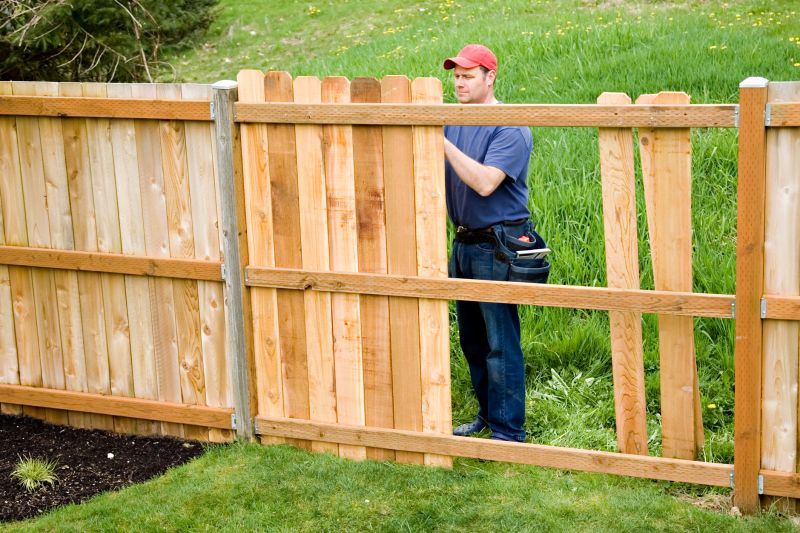
The short, realistic tool list for quality Wood Fence Staining Service.
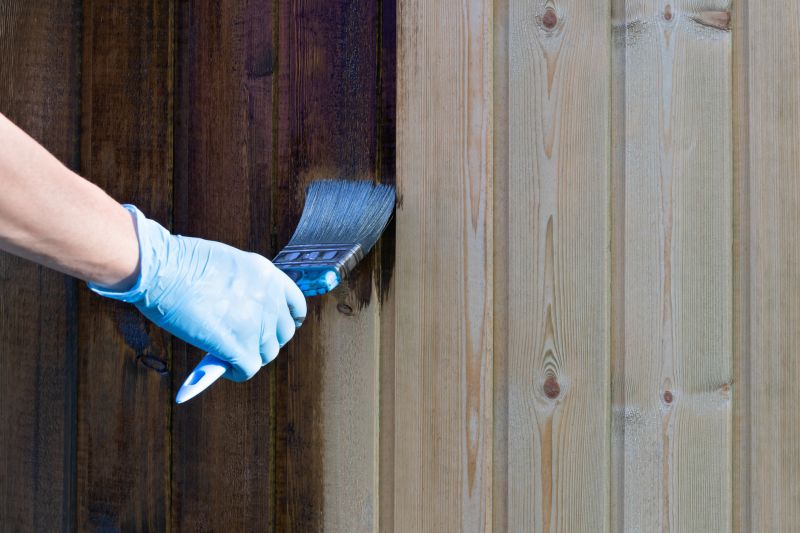
Rough timing from prep to clean-up for Wood Fence Staining Service.
Interested in enhancing the longevity and appearance of a wood fence? Filling out the contact form can provide additional guidance on scheduling and preparation for staining projects.
